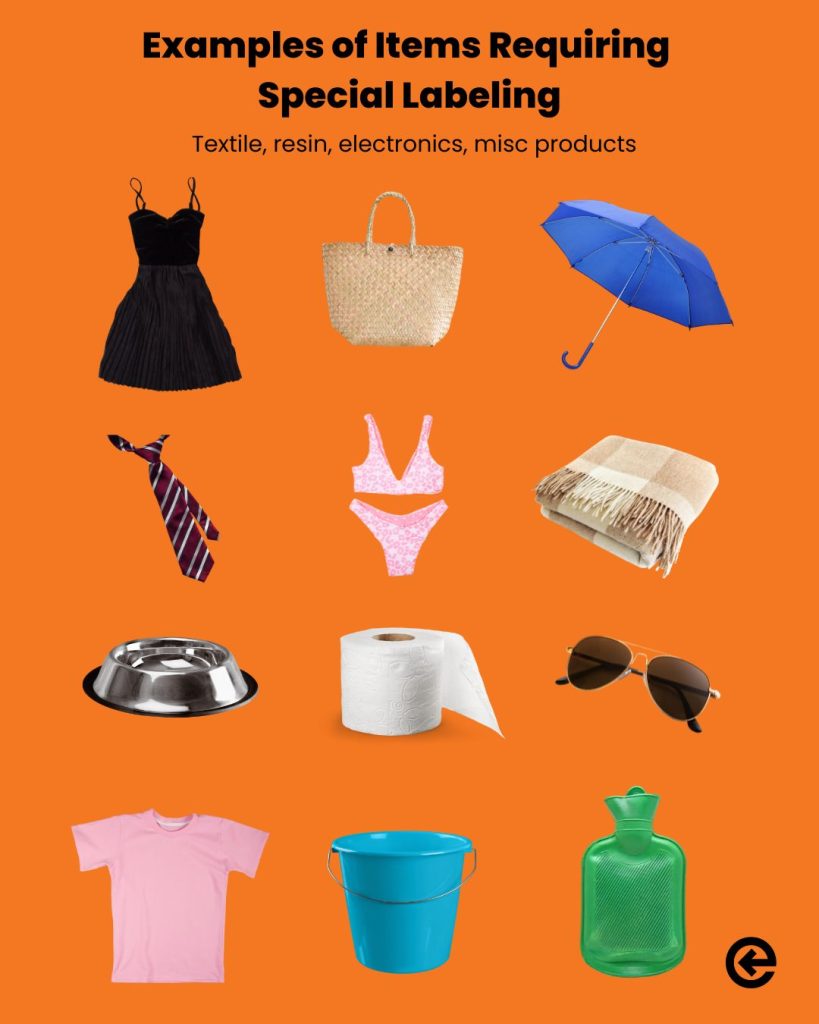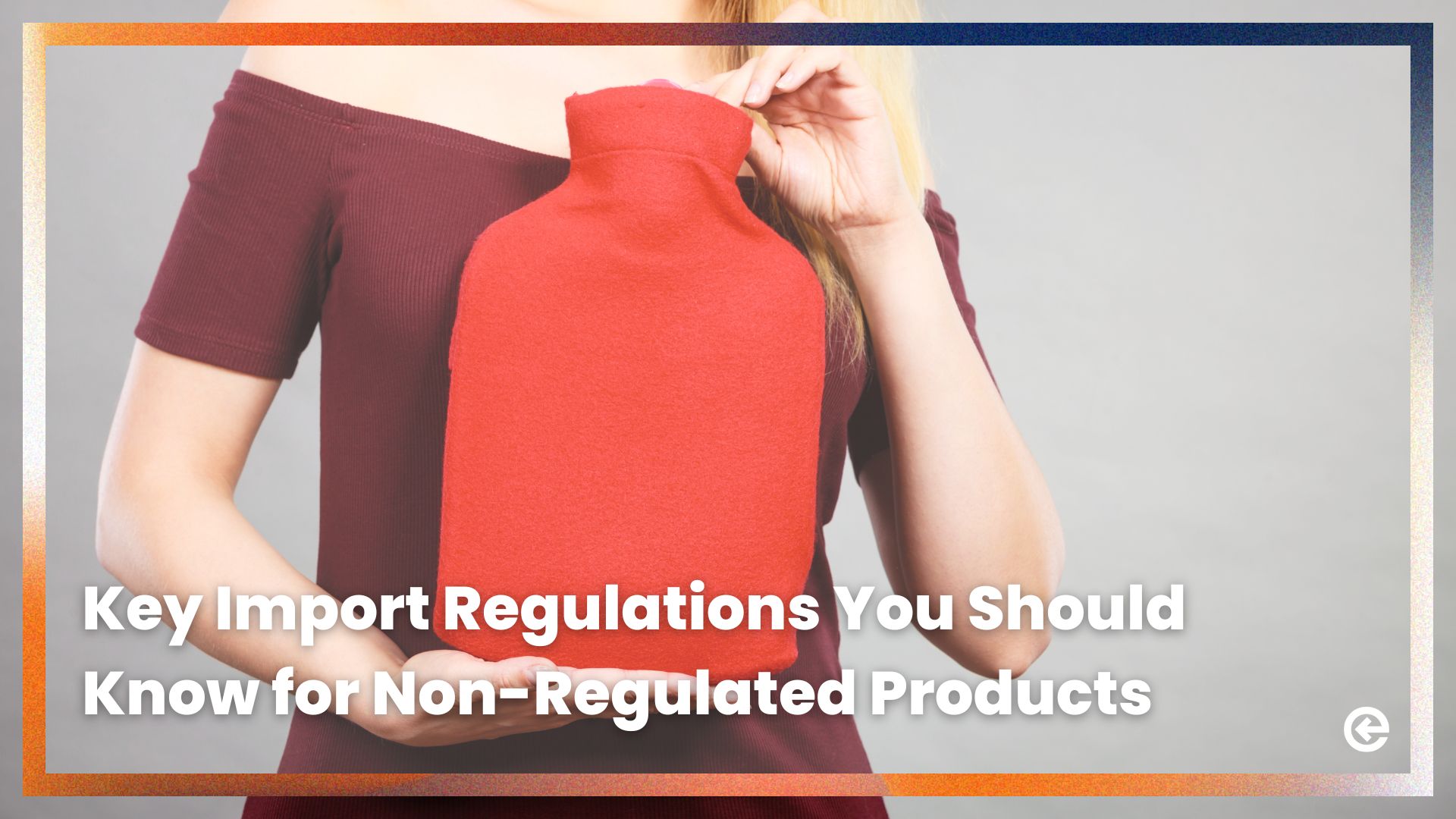Key Import Regulations You Should Know for Non-Regulated Products
Importing non-regulated products into Japan might seem simple at first glance, but even these “low-risk” items are subject to important rules that can make or break your shipment. Ignoring Japan’s import regulations, labeling standards, or documentation requirements can cause unexpected delays, costly fines, or even shipment rejection. This guide highlights the critical regulations you need to know when importing non-regulated products so you can confidently bring your products to market without unnecessary obstacles.
How to Classify Your Product for Japanese Import Regulations
Before importing goods into Japan, it is essential to determine whether the product is considered “non-regulated” or “regulated” under Japanese law. Understanding this distinction is crucial because it determines the level of scrutiny your product will face during the import process and what legal requirements must be met.
Pro-tip: Engage an Attorney for Customs Procedure (ACP) Expert Early
For companies without a local office or subsidiary in Japan, working with an ACP is mandatory. The ACP can not only determine your product category and ensure compliance but also handle import notifications, liaise with customs officials, and manage inspections or compliance clarifications. Selecting the right ACP partner who understands your brand and product type is essential to streamline the import process.
Understanding Non-Regulated Products
Non-regulated products are those that do not fall under Japan’s mandatory regulatory frameworks. These products are generally not subject to specific government approvals or certifications before they can be imported and sold in Japan. While they still need to comply with basic customs regulations, they are exempt from more stringent requirements such as safety certifications, permits, or health-related inspections.
Examples of non-regulated products typically include:
- Certain consumer goods like household items (non-electrical)
- Standard accessories
- Books and printed materials (with some exceptions for content regulation)
- Non-hazardous kitchenware and decor items
- Basic office supplies
However, even non-regulated products must still meet essential requirements such as customs duties and import documentation. Most non-regulated products do not require labels, but some are still subject to labeling standards, requiring them to list product names, country of origin, materials and the importer’s contact details.
Read our step-by-step guide to learn more about how to import non-regulated products into Japan.
Overview of Regulated Products
Regulated products are those that are subject to more stringent rules due to concerns over safety, health, or the environment. These products often require certifications, permits, or approval before they can be legally imported and sold in Japan. Failure to comply with these regulations can result in penalties, delays, or even the rejection of the product at customs.
Some examples of regulated products under Japanese law include:
- Pharmaceuticals and Medical Devices: Subject to the Pharmaceutical and Medical Device Act, these products require regulatory approval from the Ministry of Health, Labor and Welfare (MHLW) before they can be imported.
- Food and Beverages: Governed by the Food Sanitation Act and the Health Promotion Act, these products must meet strict safety and labeling requirements. Food apparatus and any product that comes into contact with food or the mouth are subject to this regulation. Products such as supplements or food with health claims also require pre-market approval.
- Electrical Appliances and Materials: Must comply with the Electrical Appliance and Material Safety Act (DENAN) to ensure safety standards are met before the product enters the market.
- Cosmetics: Regulated by the Pharmaceutical Affairs Act and subject to product safety and ingredient testing.
- Chemicals and Hazardous Materials: Controlled under laws like the Poisonous and Deleterious Substances Control Law, High Pressure Gas Safety Act, and Chemical Substances Control Law, which mandate specific permits for import.
- Toys and Children’s Products: Must meet safety standards as outlined in the Consumer Product Safety Act.
Determining whether your product is regulated or non-regulated is a crucial first step in ensuring compliance with Japanese laws and avoiding delays or penalties in the import process. Working with a trusted ACP can help you ensure compliance by performing thorough regulatory screenings to confirm product classification, securing all necessary approvals and certifications ahead of time.
Detailed Labeling Requirements for Key Non-Regulated Product Categories
Special Cases for Non-Regulated Products
Non-regulated products, including textiles, synthetic resin products, , and miscellaneous goods, have specific labeling requirements in Japan. While these items do not require mandatory approval or certification before import, they still must comply with certain labeling standards. These standards are set to ensure consumer safety and to provide clear information on the product’s composition, usage, and origin.
Labeling
The Household Goods Quality Labeling Act in Japan outlines specific labeling requirements for designated products, including textile goods, plastic products, electrical appliances, and miscellaneous manufactured goods. This regulation doesn’t just apply to non-regulated products but across all categories, including regulated products.
These products are considered difficult for consumers to evaluate in terms of quality at the time of purchase, making clear labeling essential.

Under this law, manufacturers, sellers, or designated contractors are required to adhere to consistent labeling standards that specify the following, with specific details varying depending on the product or product category:
- Product’s components
- Product’s performance
- Usage instructions
- Handling precautions
If a product is not properly labeled, METI (the Ministry of Economy Trade & Industry) can demand the manufacturer or seller to comply with the labeling requirements. In case of non-compliance, the authorities may publicly name, shame, or even blacklist the manufacturer from importing.
The enforcement of these regulations is supervised through reports and on-site inspections conducted by METI or local government bodies, ensuring the standards are met.
When to Consult with an Expert
Some products that appear to be non-regulated may actually be classified as regulated, especially if they come into contact with the mouth or food, contain electrical components, or present potential safety risks. Such products could face stricter regulations due to health or safety concerns. Failure to comply can lead to import delays or fines. Getting stopped at customs with a product that’s actually regulated can cause significant delays and high customs costs, since regulated items often require lengthy approval processes.
To avoid these issues, it’s crucial to consult experts like an ACP early. They not only help classify your products accurately but also manage your ACP notification process, ensuring all required documents are complete and consistent.
Efficient Documentation Preparation & Common Errors
Now that your product category is sorted, let’s get your documents in order .
We’ve explored the necessary documents for importing into Japan and how to prepare them in this guide. To help ensure your import process goes smoothly and without errors, here are some key tips on efficient documentation preparation and common pitfalls to avoid when dealing with non-regulated products.
Common Documentation Errors to Watch For:
- Mismatched product names or descriptions between documents
Consequence: Customs may delay clearance or reject the shipment.
How to avoid: Ensure all documents consistently use the exact product names and descriptions. - Incorrect or missing HS tariff codes
Consequence: Leads to misclassification, possible fines, or delays.
How to avoid: Verify and use accurate HS codes for each product. - Incomplete company or product information
Consequence: Customs can request additional info, causing shipment delays.
How to avoid: Provide full, clear company and product details in all paperwork. - Missing ACP notification prior to shipping
Consequence: Import may be blocked or delayed at customs.
How to avoid: Wait for your ACP Notification to be approved before shipping your goods. - Currency or price discrepancies
Consequence: Customs may reassess declared import value and apply their own assessed value if they deem the declared value is inaccurate.
How to avoid: Confirm all pricing and currency info matches across all documents.
Looking Ahead: Regulatory Trends
The regulatory environment for non-regulated products in Japan is evolving, with increasing emphasis on safety, chemical controls, and digital processes.
While non-regulated products still represent the majority of imports to Japan, the country remains committed to consumer safety by regularly reviewing and analyzing the safety of imported goods. As a result, Japan frequently updates or expands its regulations to better support the market.
For example, in 2024, stricter rules were introduced concerning PFAS and other harmful substances. In 2025, the Product Safety Acts were revised to address the rapid growth of online and cross-border sales—along with the increasing risk of non-compliant imports. And in 2026, there are plans to make adjustments to the import process and taxes associated with non-regulated, low value imports. To understand how these changes may affect your products, be sure to consult local regulatory websites or speak with a qualified ACP or Importer of Record (IOR).
Ready to Simplify Your Import Process?
Understanding and complying with Japan’s import regulations can be complex, especially when it comes to proper product classification and documentation.
While non-regulated products don’t require extensive certifications or testing, they must still comply with general import laws and labeling requirements. Proper documentation ensures the products meet Japan’s safety and trade standards. Customs strictly enforces these paperwork rules to protect consumers and maintain fair trade practices.
By following these tips and partnering with a trusted ACP, you can get your products to market smoothly.
At COVUE, we can act as your ACP, handling import notifications and customs communications on your behalf. We also offer label creation services to ensure your products meet all Japanese regulatory requirements, helping you stay compliant from start to finish.
If you’re ready to take the next step or have questions about your specific products, contact us today. Our experienced team is here to guide you through every stage of the import process with confidence and ease.


